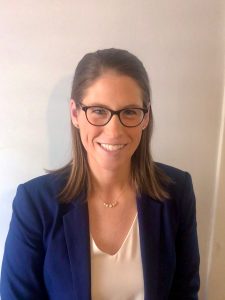People will tell you all sorts of terrible things about law school: getting “cold called” by ruthless professors, competitive classmates who steal your notes, or insurmountable workloads that rule your life. While I’m only one and a half semesters in, I feel confident when I say that nothing could be further from the truth at Loyola University Chicago School of Law (“Loyola”).At Loyola, I feel like I am surrounded by people who want me to succeed. My professors are always willing to meet with students outside of class. My classmates are supportive of each other, often forming study groups or sharing resources. Among many layers of support at Loyola, one especially great perk is that every first-year course has a tutor assigned to provide supplementary teaching and advising to students. The tutors are a second or third-year student whose main goal is to help you do well in that class by holding office hours, reviewing assignments, and breaking down the complex material. Upperclassmen also serve as mentors to first year students and offer advice on things like final exam prep or course selection.
So far, I’ve found that Loyola defies all of the unfortunate stereotypes about law school. In fact, it seems that Loyola actually prides itself on helping students succeed.
IP at Loyola: Supporting Newcomers
In particular, I have found Loyola’s supportive culture especially strong in the Intellectual Property (“IP”) law department. I came to law school after working in education for eight years. Education law was the rational next step, but I was determined to keep my options open in law school. I actually think I checked almost every box on my application that asked which areas of law I was interested in; what did I have to lose? When I clicked the IP box, I didn’t think much of it. I’d heard that Loyola had a “strong” IP program, but that was about all I knew; turns out, “strong” was definitely an understatement.
In the spring before my first semester, I received an email from Professor Cynthia Ho, director of Loyola’s IP program, inviting me to a mock trial of a case involving trade secrets—which is a type of IP. I was struck by the fact that I was asked to attend an event like this before I even walked into my first law class. Professor Ho made a point to talk to the incoming students in attendance and encouraged us to network with practicing IP lawyers at the reception. I spoke to several attorneys about their careers and was intrigued by the work they did. Copyrights, trademarks, patents, trade secrets, brand management: so much to think about!
As luck would have it, I ended up in Professor Ho’s Civil Procedure class (a class required for every first-year student). She made a plug for the Intellectual Property Law Society and encouraged anyone with even a slight interest to attend the first meeting—which, at that point, included me—so I went. Like most student events at Loyola, the meeting was led by supportive students eager to share their reflections and advice
 about how to break into the IP world. Professor Ho gave a presentation about the many different forms IP law can take, emphasizing that you do not need a science background to practice it. I found myself surrounded by people encouraging me to pursue my new interest and willing to support along the way.
about how to break into the IP world. Professor Ho gave a presentation about the many different forms IP law can take, emphasizing that you do not need a science background to practice it. I found myself surrounded by people encouraging me to pursue my new interest and willing to support along the way.
Loyola Alumni Reaching Back
Loyola also has an active alumni network full of professionals ready to help fellow Ramblers. Every semester, Loyola hosts “speed networking” events, both for students with an interest in law generally and those with interest in specific legal fields, where students have the opportunity to speak with roughly 20 attorneys in less than one hour. At these events, it’s more than likely you’ll speak with several Loyola alumni, who always seem to be the friendliest in the room. I attended both a general speed networking and two more specifically for IP Law. I left both the IP events feeling even more excited about the possibility of a career in IP law. I’ve even had follow-up coffee meetings with several Loyola graduates I met at these events.
Opportunities to Explore IP at Loyola
In addition to the amazing people who make up the IP community in Chicago, the Loyola IP program itself is robust and impressive. Loyola offers an extensive and varied curriculum, where students are certain to find a class that matches their interests. Though not required to get involved in IP, you can choose to enroll in the first-year IP Legal Writing course and gain first-hand experience writing IP memos and briefs from an experienced IP practitioner. Even those first-year students like me without a science background can take an elective on patent law related to access to medicine.
Outside of class, the IP Bytes Blog provides students (even 1Ls!) with the opportunity to write about IP topics while getting published online and to meet other students interested in IP. Also, junior associates fresh out of law school are often asked to write blog posts, so IP Bytes can provide good “real-world” experience that may be valuable after graduation.
Lastly, the IP faculty members at Loyola are incredibly helpful and willing to go above and beyond to help students secure jobs. Professor Ho edited my resume and countless cover letters, sent me job opportunities, and encouraged me to use her name to connect to alumni in IP. Loyola prides itself on offering that kind of support, and members of the Loyola IP community raise the bar even higher.
You’re Not Alone!
At Loyola, and particularly in the IP program, I have found my classmates and professors to be my biggest cheerleaders, and alumni have been more than willing to reach back to help. I don’t know yet where my new interests in IP law may take me, but I’m certain I won’t be alone as I figure it out!
Maggie DePoy, Assistant Blogger
Loyola University Chicago School of Law, JD 2022
Maggie is a 1L who is enjoying her new seat in the classroom after spending seven years as a teacher in New Orleans and Chicago.
